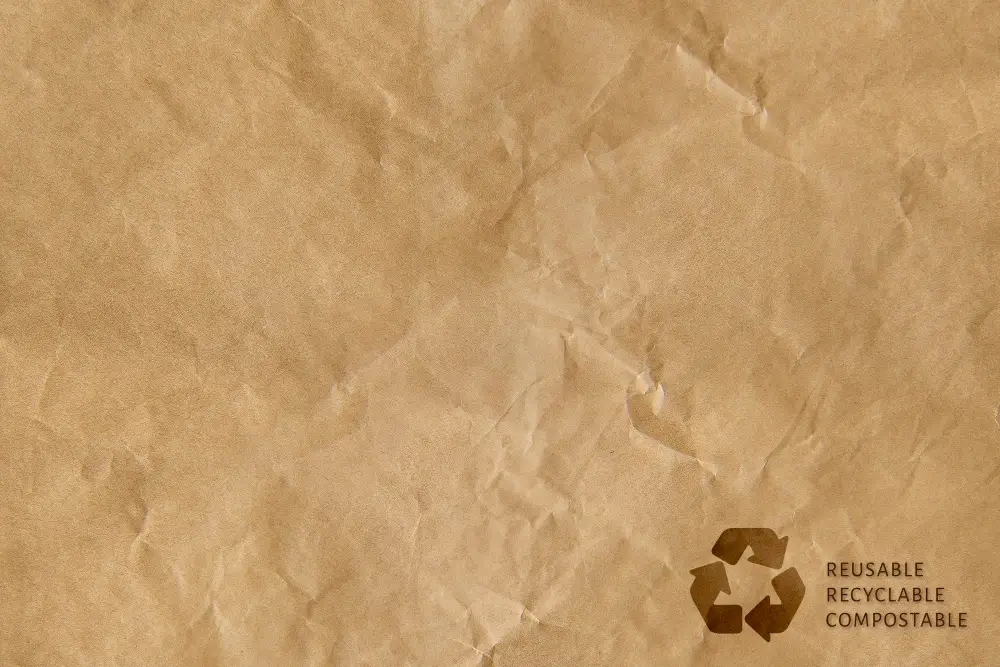Good compost must contain brown carbon-rich materials. All the brown material you need can be found in your apartment or at home. Several items can be recycled, including brown paper bags, cardboard boxes, cotton underwear, yard waste such as fallen leaves, etc.
Table of Contents
What are brown materials for compost?
Compostable brown materials include dry and woody plant materials. Most of these materials are brown or naturally turn brown over time.
The following are examples of brown items:
- Fall leaves
- Pine needles
- Twigs chipped tree branches/bark
- Straw or hay
- Sawdust
- Corn stalks
- Paper (paper plates, newspaper, napkins, printing or writing paper, and coffee filters)
- Dryer lint
- Cotton fabric
- Corrugated cardboard (without waxy or slick coatings)
Why do you need brown compost materials?
The compost browns are dry, carbon-rich ingredients that provide carbon to the microorganisms that break down the food scraps. The fact that brown matter for compost is quite dry helps prevent the pile from becoming a stinky, slimy mess.
Leaves, mulch, yard trimmings or yard waste, fallen leaves, dry leaves, and other debris from your landscaping are considered brown materials, and they are an excellent addition to your pile to maintain a proper carbon-to-nitrogen ratio (c:n ratio).
A DIY compost heap will consist of organic materials such as kitchen scraps, organic kitchen waste, coffee grounds, etc. A good mix of browns will improve the quality of your home compost.
The moist green materials are nitrogen-rich, while those that are brown and dry tend to be high in carbon.
20 best brown materials lying around your house
Finding high-quality browns in your apartment or condo is often possible.
Compost ingredients include:
- Newspapers (use shredder)
- Cotton fabric (underwear)
- Brown paper bags
- Packaging materials like cardboard boxes
- Dryer lin
- Eggshells
- Pet hair
- Dust bunnies
- Feathers
- Full vacuum filters
- Used coffee filters
- Tea bags
- Used envelopes
- Used desk calendars
- Paper rolls
- Memos (who needs ‘em!)
- Used sticky notes
- Used notepads
- Tissue paper
- Nut shells
Brown materials to be avoided
For successful composting, there are some things you should avoid putting in your compost bin as they can cause your composting process to fail.
1. Certain Types of Wood
As most composters know, organic matter such as wood chips can make an excellent addition to a compost pile; however, please refrain from using black walnut, tree of heaven, magnolia, and eucalyptus as they emit allelochemicals.
2. Plastic Coated Paper
Do not compost paper coated with plastic-like coatings to make it bright, colorful, and glossy.
It is unlikely that they will decompose properly and contain toxins that are harmful to your plants.
A few examples of this type of paper include magazines, wrapping paper, and catalogs.
You might consider passing on old magazines or books cluttering your house if you are looking for a way to get rid of them.
In addition to your friends who might enjoy them, many doctors’ offices, clinics, and other places with waiting rooms are happy to reuse your magazines and books.
3. Charcoal Briquettes & Ashes with Additives
You should not compost charcoal briquettes containing additives since they contain potentially hazardous chemicals. Ashes from your grill are also subject to this rule.
After they have cooled completely, it is recommended that they be wrapped in foil and disposed of.
Alternatively, if you have additive-free briquettes, you may add them to your compost. Make sure they are completely cool before using them so as not to cause a fire hazard.
4. Inorganic & Non-Biodegradable Materials
Material such as plastic, glass, aluminum foil, and metal that is inorganic or non-biodegradable should not be disposed of in a compost pile since they will not decompose.
It is important to be aware that this also applies to the little sticky labels that appear on banana peels. You do not want those to end up in your garden at some point in the future.
The majority of food packaging is not organic and should not be composted. You should only add food items to your compost if you remove old, moldy, and stale food from your refrigerator.
You may either wash and reuse sandwich baggies, plastic wrap, and aluminum foil that are commonly used for storing leftovers in the refrigerator, or you may discard them.
5. Treated Wood Sawdust
Composting treated wood is not recommended for similar reasons as not composting charcoal briquettes containing additives.
Wood that has been painted, stained, varnished, or pressure treated falls under this category.
All of these products contain toxic compounds that will adversely affect the health of your plants.

